Christine Valters Paintner's Blog, page 72
January 18, 2020
Monk in the World: Work 1 – Reflection by Christine + Art
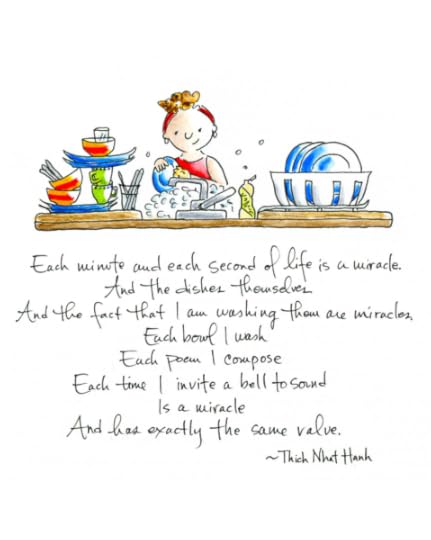 Dear monks, artists, and pilgrims,
Dear monks, artists, and pilgrims,
During this Jubilee year of sabbatical we are revisiting our Monk Manifesto by moving slowly through the Monk in the World retreat materials together every Sunday. Each week will offer new reflections on the theme and every six weeks will introduce a new principle.
Principle 5: I commit to bringing myself fully present to the work I do, whether paid or unpaid, holding a heart of gratitude for the ability to express my gifts in the world in meaningful ways.
"In Benedictine spirituality, work is what we do to continue what God wanted done. Work is co-creative. Keeping a home that is beautiful and ordered and nourishing and artistic is co-creative. Working in a machine shop that makes gears for tractors is co-creative. Working in an office that processes loan applications for people who are trying to make life more humane is co-creative. . .We work because the world is unfinished and it is ours to develop. We work with a vision in mind. . . Work is a commitment to God's service."
—Joan Chittister, Wisdom Distilled from the Daily
Work is an important element of monastic life. Benedict called for his monks to live by the work of their own hands. Monastic spirituality calls us to be present to the gifts of meaningful work, work which gives us shelter and food, work which allows us to be a part of something larger than ourselves, work which gives us space for creative expression.
Work isn't always what we are paid to do. Meaningful work is rooted in our sense of vocation – what we have been called by God to offer in service through our unique gifts. Work, as Joan Chittister writes above, is co-creative. It contributes to the flourishing of heaven on earth.
As monks in the world, work life is perhaps the hallmark of our relationship to our communities. It is often the place where we make our offering. Even if our work feels tedious, we are called as monks to be present to each moment and enter into it with love. In this way we grow in freedom and discover how we are being called even more deeply to transform the world.
With great and growing love,
Christine
Christine Valters Paintner, PhD, REACE
Art © Kristin Noelle
Text: "Each minute and each second of life is a miracle. / And the dishes themselves / And the fact that I am washing them are miracles. / Each bowl I wash / Each poem I compose / Each time I invite a bell to sound / Is a miracle / And has exactly the same value." Thich Nhat Hanh
January 17, 2020
Join Abbey of the Arts on retreat in 2021!

We are delighted that all of our 2020 pilgrimages and retreats have been full for several months now (you are always welcome to add yourself to our cancellation list as we do have folks drop out).
We are scaling back on our live offerings for 2021 to allow more time for writing but are thrilled to announce the following programs which are currently open for registration:
Writing on the Wild Edges: A Creative Retreat on the Island of Inismor (Ireland)
with Christine & John Valters Paintner
May 9-15, 2021 – limited to 18 participants
More details here>>
Poetry and the Sacred Garden of the World: A Creative Retreat on the Island of Inismor (Ireland)
with Christine & John Valters Paintner
August 22-28, 2021 – limited to 18 participants
More details here>>
*This retreat is based on content Christine developed for Chartres and is similar in format to our other writing retreat above with even more emphasis on poetry. Open to all levels of experience.
Hildegard of Bingen and the Greening Power of God: A Pilgrimage in Germany
with Christine Valters Paintner and Betsey Beckman
September 11-19, 2021 – limited to 16 participants (HALF FULL! Only twin shared rooms left)
More details here>>
These are likely going to be the only live programs offered by Christine in 2021 as we are also hosting a couple of private groups. Let us know if you have questions or need an encouraging nudge to join us!
Livestream Event with Abbey Musicians Simon & Richard
We are so delighted that Richard Bruxvoort Colligan and Simon de Voil, two sacred musicians we work with extensively at Abbey of the Arts, are collaborating together and offering a livestream event next Wednesday (January 22nd). You can sign up below. They are both such soulful musicians as well as gorgeous presences bringing beauty into the world.
We have a new album being released very soon to accompany Christine's book *Earth, Our Original Monastery* (available to pre-order) and both Richard and Simon have songs featured on it!
They each are a part of the Patreon platform, so you can support their music that way and have access to all kinds of lovely extras in music and ministry. It is really a wonderful way to support the arts and independent musicians and to say to the world, this deeply matters!
Earth, Our Original Monastery book excerpt
 Mercy by the Sea retreat center has shared an excerpt from the introduction of Christine Valters Paintner's forthcoming book Earth, Our Original Monastery: Cultivating Wonder and Gratitude through Intimacy with Nature:
Mercy by the Sea retreat center has shared an excerpt from the introduction of Christine Valters Paintner's forthcoming book Earth, Our Original Monastery: Cultivating Wonder and Gratitude through Intimacy with Nature:
Everything in creation becomes a catalyst for my deepened self-understanding. The forest asks me to embrace my truth once again. The hummingbird invites me to sip holy nectar, the egret to stretch out my wings, the sparrows to remember my flock.
Each pine cone contains an epiphany; each smooth stone offers a revelation. I watch and witness as the sun slowly makes her long arc across the sky and discover my own rising and falling. The moon will sing of quiet miracles, like those which reveal and conceal the world every day right before our eyes.
Click the link to read the whole excerpt>>
Click here to pre-order online at Amazon or directly from Ave Maria Press>>
January 14, 2020
Monk in the World Guest Post: Elizabeth Brady
I am delighted to share another beautiful submission to the Monk in the World guest post series from the community. Read on for Elizabeth Brady's reflection "The Slow Unfurling of a Fiddlehead."
When I reflect on the question of how I live as a monk in the world I think of a fiddlehead. It is a delightful word to say and invites the inevitable question: what is a fiddlehead?
A fiddlehead is the furled frond of a young fern. It is largely ornamental and can be eaten as a side dish, but if it were left on the plant to fully grow it would unroll into a new frond. We have all delighted in the outrageous and unsubtle ways in which our spiritual lives are reflected in nature and the fiddlehead is no different.
It is untested; unfurled and therefore in the neat and tidy shape of a scroll and thus appreciated for those reasons. But when we begin to unfurl it allows for new growth and our very survival. And this tug between our inner striving and life's outer demands helps us to fully grow.
On New Year's Eve 2012 our son Mack, who was two weeks shy of his ninth birthday, died suddenly of a severe blood infection on a Lifelink helicopter on route to Hershey Children's Hospital. My husband and I drove as fast as we could to keep up with the helicopter, fireworks dotting the night sky in between the rolling mountains of Pennsylvania.
Emily Dickinson wrote, "Dying is a wild night and a new road," apparently musing upon her own death, but it holds true for the complete upheaval of life after such a storm. There are few things that have not changed for me and my husband and our daughter since Mack's death six and a half years ago, but others have come into sharp relief.
One of them is the practice that I began as a young short-term missionary in West Africa almost thirty years ago. I was required to keep a journal and so the practice of morning prayer and reflection became a part of me that I have carried throughout my life. In the early days after Mack's death I returned to my desk in the early morning out of habit and would stare numbly out the window and watch the sunrise. I came because it is my sacred space. And, somehow, I knew that in that space where I meet the Lord that I would find Mack, too. And I have.
But what has most changed for me in the slow and painful unfurling beyond the death of our son is that I no longer come to prayer with the thought that I am becoming more spiritual. I come to prayer because it helps me appreciate my humanness.
By humanness I mean that I recognize that I am only here for a finite time. Mack's early death is a constant reminder that our human experience is fleeting so I am more mindful of the present.
By humanness I recognize that I am imperfect. And, part of the unfurling of a fiddlehead is finding peace in the midst of the messy but necessary and never-ending process of growth.
I have also learned from Mack's death that although I am finite, my relationships are infinite. One of the most astonishing aspects of the death of someone you love is that love does not die. This slow, hidden process is cultivated in the interior journey and yet it has also transformed the way I see the people I am honored to share life with and who are willing to share life with me.
I am grateful for my slow unfurling.
 Elizabeth and her family honored Mack by establishing the Mack Brady Soccer Fund that helps recruit and train the best keepers for Penn State men's soccer. She teaches at Penn State and her essays can be found at OpenToHope.com, ModernLoss.com, and "Bodies of Truth: Personal Narratives on Illness, Disability, and Medicine."
Elizabeth and her family honored Mack by establishing the Mack Brady Soccer Fund that helps recruit and train the best keepers for Penn State men's soccer. She teaches at Penn State and her essays can be found at OpenToHope.com, ModernLoss.com, and "Bodies of Truth: Personal Narratives on Illness, Disability, and Medicine."
January 11, 2020
Monk in the World: Kinship with Creation 6 – Reflection Questions and Closing Blessing ~ A Love Note from Your Online Abbess
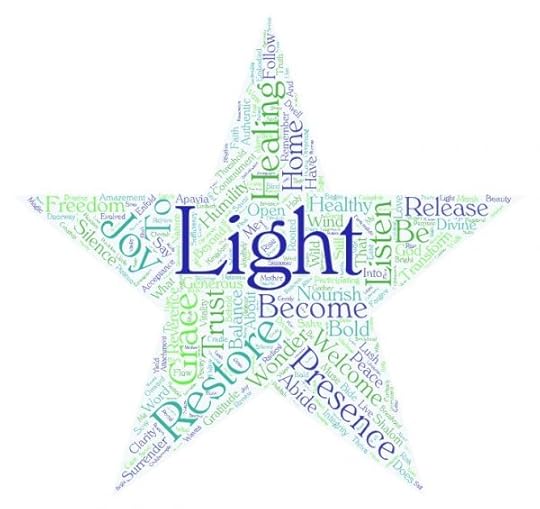 Dearest monks, artists, and pilgrims,
Dearest monks, artists, and pilgrims,
During this Jubilee year of sabbatical we are revisiting our Monk Manifesto by moving slowly through the Monk in the World retreat materials together every Sunday. Each week will offer new reflections on the theme and every six weeks will introduce a new principle.
Principle 4: I commit to cultivating awareness of my kinship with creation and a healthy asceticism by discerning my use of energy and things, letting go of what does not help nature to flourish.
Reflection Questions
How are you being called to awaken this new day?
Where are you being invited to embrace your own radiance in the fullness of the day?
What are you being summoned to release as the day ends?
Where are the places you are being called to surrender into deeper unknowing and a sense of the mystery of night?
Closing Blessing from Christine
God of fecundity,
you overflow into creation
with each moment,
offering the gifts of beauty, wildness, and nourishment.
I embrace the sacred rhythms of light and dark,
rise and fall, fullness and emptiness,
as the pulse which animates every living thing.
Enliven my commitment
to live as a member of the whole earth community.
With great and growing love,
Christine
Christine Valters Paintner, PhD, REACE
Image credit: Star image above is a word cloud made up of words from this community to guide them in 2020
January 7, 2020
Featured Poet: Sofia M. Starnes
Last spring we launched a series with poets whose work we love and want to feature and will continue it moving forward.
Our next poet is Sofia M. Starnes whose work is centered on God, as infinite mind and heart. Read her poetry and discover more about the connections she makes between poetry and the sacred. Listen to her read "The Soul's Landscape" below.
https://abbeyofthearts.com/blog/wp-content/uploads/2020/01/TheSoulsLandscape10.9.19mp3.mp3
Intercession I
A time for keeping quiet,
A time for speaking …
—Ecclesiastes: 3
Not the attic light, but the bricks that left us asking
where the house was,
and the widow-walk.
Not the porch lamps, but the blueprint of a sunroom
and a window stripped to bone. Chanticleer.
By early dawn, the swindle of a cockcrow flew apart.
So, did death stop speaking too?
All our ladders have become: ribcage, bruise
appraisal, crackers in a can, dry root—
which is to say, a basement full of words made
tangible—
music in large cages and small rooms.
And so I turn to voice as sling, to call as latticework
of tongues
(gossips in a loft),
that breaks our fall through ink and mockingbird,
those nights we test our hand on spring, incur a rustle—
brush before abandon.
From Fully Into Ashes, Wings Press, 2011;
first published in ARTS
Themes of Her Work
Having written mostly in free verse (although the use of formal stanzas and their cadence give my poems visual and oral shape), I recently discovered a 15th-16th century form, the dizain, which captivated me with its conciseness and prescribed constraints.
Against the chaos and disjointedness of the prevailing "outrage culture", I am drawn to the dizain's whispering power. I am exploring it further, hoping to recast it with contemporary voice. The themes of the poems vary, but their center remains the same: God, as infinite mind and heart; our minds and hearts growing only, and fully, by abiding in his.
Miracle
A word disperses what a breath has caught,
as crimson bird fraying the autumn mist,
or ruffle in a cloth, a thread, once knot,
now a quiver. Tell us, the crowds insist;
for telling means that languages exist
past brokenness—until they taste the salt
of being healed. Far closer now, the fault
that split the girl's lips from her Hebrew tongue.
Talitha koum! Her breath, turned somersault,
pinwheels the distance between gasp and song.
Published in Presence, 2019
Poetry and the Sacred
I think everything we do derives from our having been fed, which is why it is fitting that we say grace, not only before meals, but before anything else we do. Before writing.
Writing is a willful act which takes us closer to or (God forbid) farther from God. There is no staying in place. Not because we do the "approaching"—it is always God's call—but because only in his presence can we respond to God's initiative. So, whenever I write, I try to place myself in the presence of God, praying that the words will neither go astray nor lead me astray. There is no guarantee that the poem will be a good poem (so many poems falter in the race!), only that the moment will be spent prayerfully, will be holy. There is still the hard work, the not-knowing whether a particular poem is worth anything at all, the need to live simultaneously with faith and doubt.
For me, writing poetry necessitates an emptying of the self, so that the poem is no longer about me. The resulting emptiness would be untenable if it were not filled with the sacred, ultimately (God-willing, in God's mercy) with God.
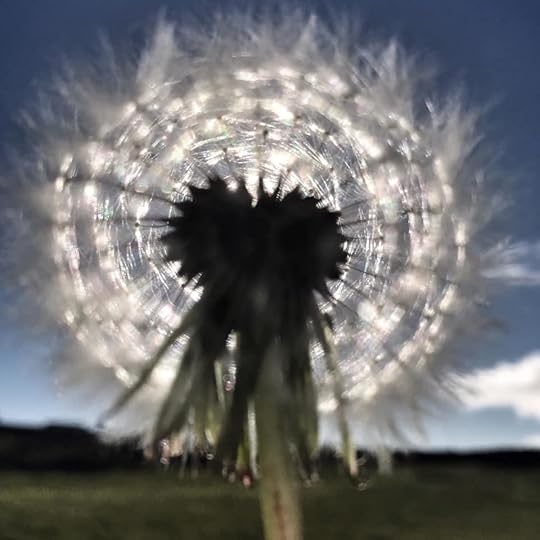
Emerge
…from Latin emergere, "bring forth, bring to light"
At times this brings a stork, past rains, abandoning
a tower; at times a bubble dying
in a pond. I hear the word emerge and see a fern
or a feather; the first one wild and wispy,
to cure a wound, the role of ancient grasses; the other,
trail of a bird, slim fan or lady's purse—
the kind fairy tales gather.
Does not your heart, weary from things apparent,
ask what each storyline will tell,
which words carry their roots with candor?
Secrets would hunker down, safe in their winter castles,
were it not—
for the prophetic stem, weighty with beans
that rides its pole for air, for what we sense of seeds,
soft inches down, fussing our veins awake,
for every bone that pulls the body alert, to learn
its fragile face. But what about our hands,
the ones we excuse from light, deep in our pockets?
With chambers dark, I think, the dark is change, is key.
From The Consequence of Moonlight (Paraclete Press, 2018);
first published in The William and Mary Review
About Sofia M. Starnes
Sofia M. Starnes, Virginia Poet Laureate (2012-2014), is the author of six poetry collections, most recently The Consequence of Moonlight (Paraclete Press, 2018). She is also the recipient of a Poetry Fellowship from the Virginia Commission for the Arts, among numerous other commendations, including five Pushcart Prize nominations. In 2013, she received an honorary Doctorate in Letters from Union College, Kentucky.
From 2007 to 2019, Sofia served as Poetry Editor and Poetry Book Review Editor for The Anglican Theological Review. Currently, in addition to working on her poetry she is a manuscript editor and mentor for writers of poetry, fiction, and non-fiction. She is also a freelance literary translator, particularly of art essays, memoirs, and historical texts, most recently for Galería Cayón (Madrid, Spain), the Ayala Foundation (Manila, Philippines), and Iberdrola (Bilbao, Spain).
For more information, please visit SofiaMStarnes.com.
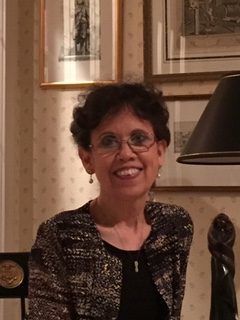

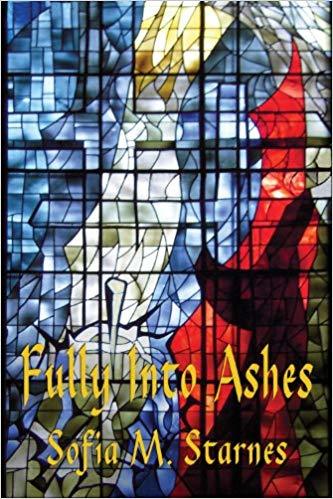
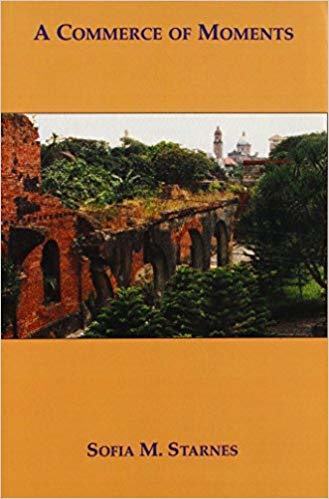
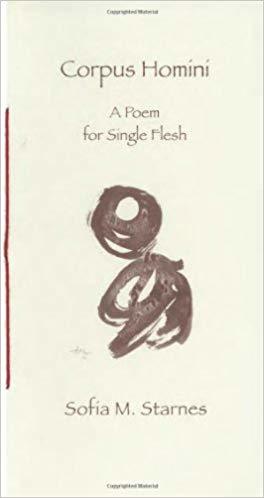
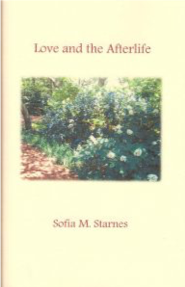
Love and the Afterlife available exclusively by contacting the poet at smstarnes@cox.net

Dreaming of Stones
Christine Valters Paintner's new collection of poems Dreaming of Stones has just been published by Paraclete Press.
The poems in Dreaming of Stones are about what endures: hope and desire, changing seasons, wild places, love, and the wisdom of mystics. Inspired by the poet's time living in Ireland these readings invite you into deeper ways of seeing the world. They have an incantational quality. Drawing on her commitment as a Benedictine oblate, the poems arise out of a practice of sitting in silence and lectio divina, in which life becomes the holy text.
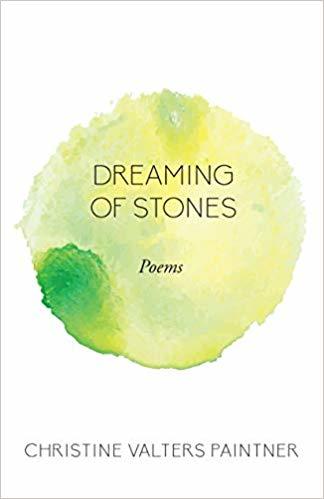
January 6, 2020
Give Me a Word 2020 Prize Drawing Winners
 Thank you to everyone for sharing your word for the year! The winners of the prize drawing are:
Thank you to everyone for sharing your word for the year! The winners of the prize drawing are:
Self Study Retreat of Your Choice
Maryrose Coughlin – Divine
Kat Dub – Transform
Betty Cooper – Becoming
Grace McGuire – Listen
Donna Summerford Bennard – Healthy
One signed copy of The Soul's Slow Ripening: 12 Celtic Practices for Seeking the Sacred by Christine Valters Paintner
Segads – Nourish
One signed copy of Dreaming of Stones: Poems by Christine Valters Paintner
Crystal – Generous
One signed copy of Earth, Our Original Monastery: Cultivating Wonder & Gratitude through Intimacy with Nature by Christine Valters Paintner (this book will be sent out in April 2020 once it is published)
Gourmey Gwen – Reverence
Winners – Please contact us dancingmonk@abbeyofthearts.com to claim your prize.
January 4, 2020
Monk in the World: Kinship with Creation 5 – Suggestions for Practice ~ A Love Note from Your Online Abbess
 Dearest monks, artists, and pilgrims,
Dearest monks, artists, and pilgrims,
During this Jubilee year of sabbatical we are revisiting our Monk Manifesto by moving slowly through the Monk in the World retreat materials together every Sunday. Each week will offer new reflections on the theme and every six weeks will introduce a new principle.
Principle 4: I commit to cultivating awareness of my kinship with creation and a healthy asceticism by discerning my use of energy and things, letting go of what does not help nature to flourish.
Suggestions for Practice: Contemplative Walk
Each time you go for your walk, see if you can begin with a sense that you are stepping into a landscape that is animate and alive. We have separated ourselves from creation by claiming consciousness only for ourselves. Creation is the first scripture and offers wisdom to us with each turn. Claiming our inner monk means remembering that we are the children of the earth, and the earth is in our bodies. Allow the trees and birds to offer you their own wisdom about living a monastic life. The rhythm we discover in the rise and fall of each day is also within. Pause throughout the day to become present to the gifts of a particular moment in time and listen for its invitations.
With great and growing love,
Christine
Christine Valters Paintner, PhD, REACE
Photo © Christine Valters Paintner
January 2, 2020
Feast of Epiphany – Follow the Star
 (From the Abbey Archives – by Christine Valters Paintner)
(From the Abbey Archives – by Christine Valters Paintner)
The story of Epiphany is one of my favorite scripture stories as it offers us a series of powerful invitations.
The last few lines of the gospel text, offer a template for an archetypal journey, that is, one we are all invited to make. We can find ourselves in the text if we have ever longed to follow an inkling into the long night knowing there were gifts awaiting us.
1. Follow the star to where it leads
The story begins with the magi calling upon the grace of night vision. Navigation in ancient times was largely by stars and constellations. Travelers had to know the night sky and trust the path through darkness and unknowing. As you cross this threshold into the New Year, what is the star beckoning you in the night? As you stand under a black sky of unknowing which star is shimmering? The star might be a particular practice, which when you commit to following it, will guide you in a holy direction. It might be a word to guide you for the year.
2. Embark on the journey, however long or difficult
Herod gathers all his chief priests and scribes to find out more about this holy birth. Instead of searching out for himself, he sends the magi on his behalf. While Herod seeks outside advice and send others, the magi make the journey for themselves. Where are you tempted to trust others to make the journey for you, perhaps in reading books about the spiritual journey but never practicing yourself? How might you own your journey more deeply in the coming year?
3. Open yourself to wonder along the way
The scriptures tell us the magi were "overjoyed at seeing the star." I like to imagine them practicing this kind of divine wonderment all along the journey there. Moments which spoke to the sacred call. When we lose our sense of wonder our hearts become hardened and cynical, we forget to believe in magical possibilities. As you enter into a new cycle of the earth's turning, how might you embrace the gift of wonder? What practices open your heart.
4. Bow down at the holy encounters in messy places
When the magi enter the messy, earthy place of the manger, it says they bow down and prostrate themselves. Prostration is an act of humility and honor, as well as full-body connection with the earth. As you encounter the sacred in the most ordinary of places, how might you express this embodied appreciation and honor.
5. Carry your treasures and give them away freely
The magi reveal the gifts they have brought of gold, frankincense, and myrrh. Gold represents the honor brought to a King, frankincense is a connection to the divine by raising our prayers heavenward, and myrrh a holy oil of anointing. What are the treasures you carry with you into the New Year? How might you offer them even more generously to others in the months to come?
6. Listen to the wisdom of dreams
The magi are warned in a dream not to return to Herod and they listen to this night wisdom. The scriptures are filled with stories of dreams delivering important messages and facilitating discernment. Our own night dreams arrive unbidden laden with mystery and meaning. In the new year, how might you honor these stories which emerge from the darkness and surrender of sleep?
7. Go home by another way
After receiving the gift of the dream, they choose another way home. In truth, after any journey of significance, there is no going back the same way as before. We always return with new awareness if we have been paying attention. What is the usual path you have traveled which has become suffocating? How this year call forth new directions in your own life? Is there something symbolic of the new way home which you could carry with you like a talisman?
These stories carry ancient treasures for us: guidance and wisdom along the way. Ultimately we turn inward to discover our own call, our own treasures to share, the dreams emerging in silent spaces.
I invite you to find a window of time in these next few days to ponder this story and these questions in your heart and see what insights they awaken for you.



